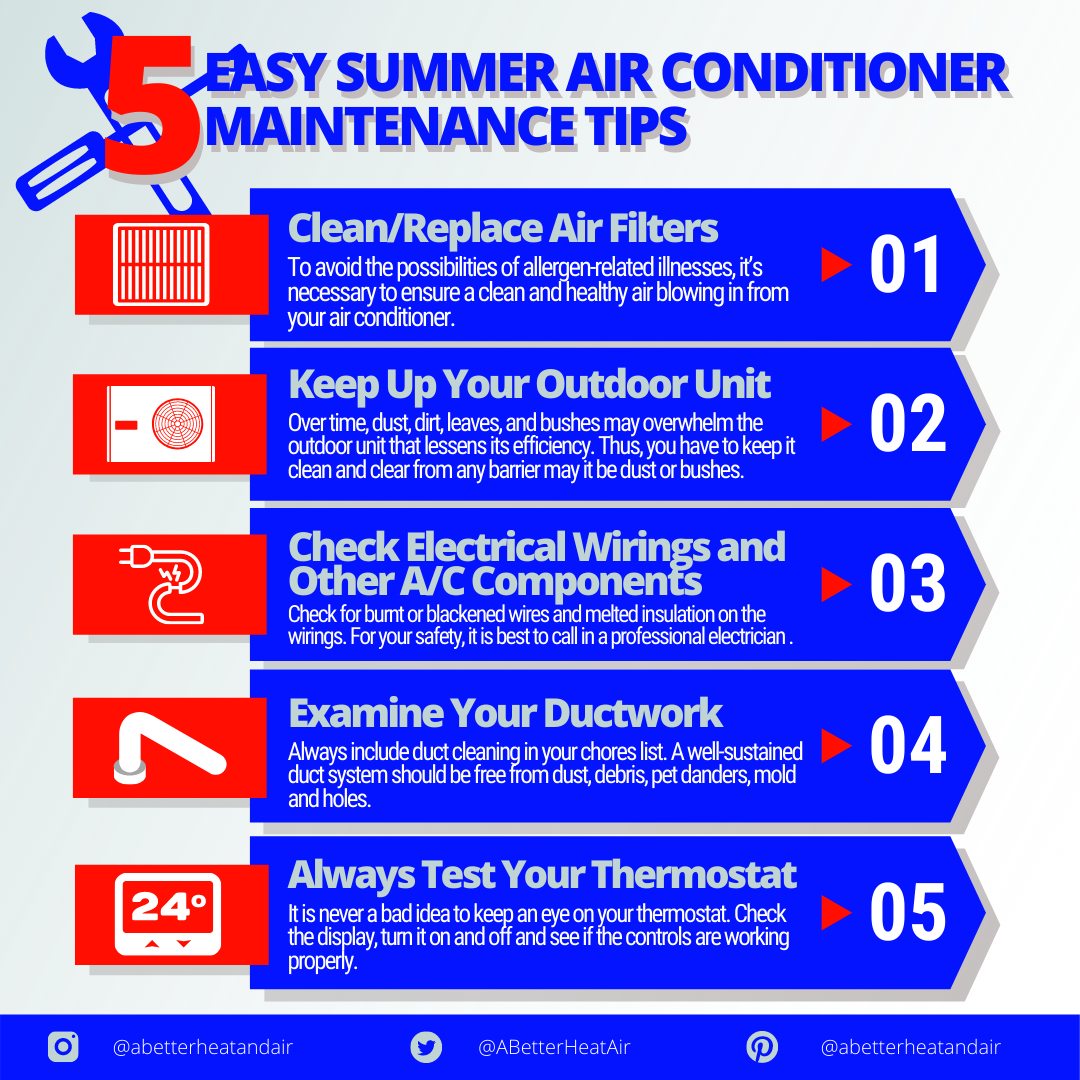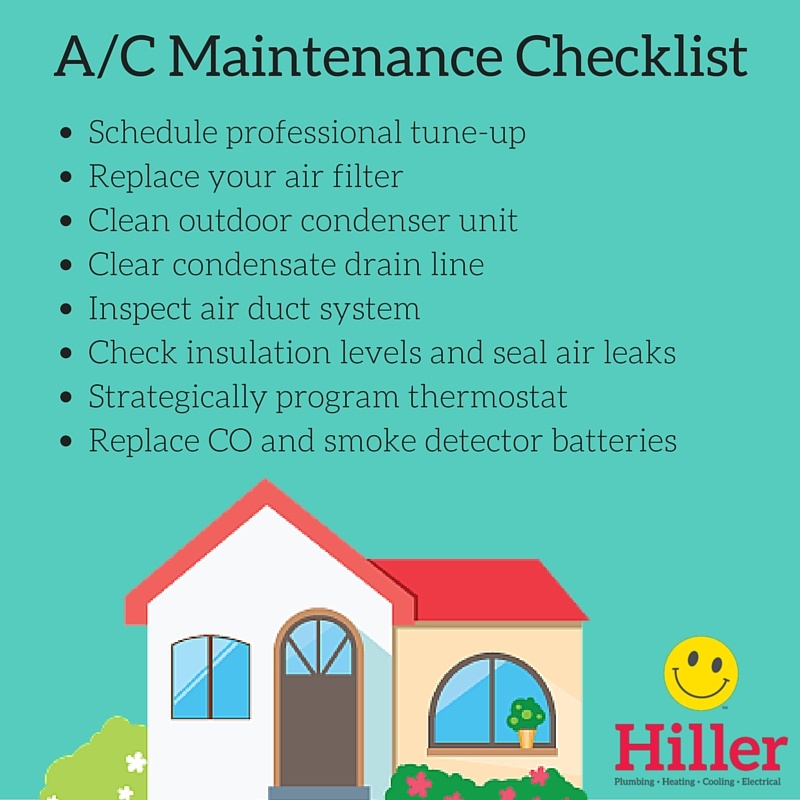Seasonal AC Maintenance Guide for Homeowners: Keeping Your Cool All Year Long

Exploring the essentials of Seasonal AC Maintenance Guide for Homeowners, this introduction sets the stage for a comprehensive look at how to keep your AC unit running smoothly throughout the year. From the importance of regular maintenance to the benefits of DIY tasks, this guide covers it all in a casual formal language style that is both informative and engaging.
As we delve deeper into the specifics of seasonal AC maintenance, homeowners will gain valuable insights on how to ensure their AC unit operates efficiently and effectively.
Importance of Seasonal AC Maintenance

Regular seasonal maintenance for your AC unit is essential for homeowners to ensure optimal performance and longevity of the system.
Potential Issues Without Regular Maintenance
- Reduced efficiency leading to higher energy bills
- Poor indoor air quality due to dirty filters
- Unexpected breakdowns and costly repairs
- Shortened lifespan of the AC unit
Extending the Lifespan of an AC Unit
By conducting seasonal maintenance, such as cleaning filters, checking refrigerant levels, and inspecting components, homeowners can prevent major issues and prolong the lifespan of their AC unit. Regular maintenance also helps in identifying minor problems before they escalate into costly repairs.
DIY Maintenance Tasks
When it comes to maintaining your AC system, there are several tasks that homeowners can perform themselves to ensure optimal performance and longevity of the unit.Regular maintenance is key to keeping your AC system running efficiently. One important DIY maintenance task is changing the air filters regularly.
Air filters help to trap dust, dirt, and other particles, preventing them from entering the system. Clogged filters can restrict airflow, making your AC work harder and potentially leading to breakdowns. By changing the filters every 1-3 months, depending on usage and filter type, you can improve air quality and extend the life of your AC unit.
Importance of Changing Air Filters
- Improves air quality by reducing dust and allergens in the air.
- Helps maintain airflow and prevent strain on the system, leading to lower energy bills.
- Extends the lifespan of your AC unit by reducing wear and tear on the components.
Regularly cleaning the condenser coils is another important DIY maintenance task. Over time, dirt and debris can accumulate on the coils, reducing their ability to absorb heat and cool the air. By gently cleaning the coils with a soft brush and removing any debris around the unit, you can improve efficiency and prevent overheating.
Benefits of Cleaning Condenser Coils
- Improves cooling efficiency and reduces energy consumption.
- Prevents overheating and potential damage to the compressor.
- Helps the AC unit run smoothly and last longer.
By performing these simple DIY maintenance tasks regularly, homeowners can save money in the long run by preventing costly repairs and extending the lifespan of their AC system.
Hiring Professional Services
When it comes to seasonal AC maintenance, there are times when it's necessary to hire professional HVAC services for the job. While some maintenance tasks can be done DIY, there are certain situations where the expertise of a professional technician is invaluable.
Benefits of Professional Maintenance
- Expertise: HVAC technicians have the knowledge and experience to identify potential issues before they become major problems.
- Efficiency: Professionals can perform maintenance tasks quickly and effectively, saving you time and ensuring your system runs smoothly.
- Quality Service: Professional maintenance ensures that all components of your AC system are properly inspected and maintained, leading to better overall performance.
What to Look for in a Reputable HVAC Technician
- License and Certification: Ensure that the technician is licensed and certified to work on HVAC systems in your area.
- Experience: Look for a technician with a good track record and years of experience in the field.
- References: Ask for references or read reviews to get an idea of the technician's reputation and quality of work.
- Pricing: While cost is important, it should not be the only factor. Choose a technician who offers fair pricing for quality service.
Seasonal Maintenance Schedule
Creating a seasonal maintenance schedule for your AC system is essential to ensure optimal performance and longevity. By organizing tasks based on seasonal changes and AC usage patterns, you can improve efficiency and prevent costly repairs down the line. Use the following template or checklist to easily track your maintenance activities throughout the year.
Spring Maintenance
- Replace air filters to improve indoor air quality and airflow.
- Inspect and clean the evaporator and condenser coils for efficient cooling.
- Check refrigerant levels and top up if necessary to prevent system breakdowns.
- Inspect ductwork for leaks and seal any gaps to improve efficiency.
Summer Maintenance
- Clean debris and vegetation around the outdoor unit for proper airflow.
- Monitor thermostat settings and adjust for optimal comfort and energy savings.
- Check for any unusual noises or odors coming from the system and address promptly.
- Schedule a professional tune-up to ensure peak performance during the hottest months.
Fall Maintenance
- Inspect and clean the blower motor for efficient airflow and heating operation.
- Test the heating function of your system before the colder months arrive.
- Seal windows and doors to prevent heat loss and reduce strain on the HVAC system.
- Consider upgrading to a programmable thermostat for energy savings and convenience.
Winter Maintenance
- Change air filters regularly to prevent dust buildup and maintain indoor air quality.
- Keep vents clear of obstructions to ensure proper airflow and heating distribution.
- Monitor humidity levels and use a humidifier to maintain optimal comfort in dry winter air.
- Consider scheduling a professional inspection to catch any issues before they escalate.
Common AC Problems and Solutions

When it comes to your AC unit, there are common issues that homeowners may encounter. It's important to be aware of these problems and know how to troubleshoot them or when to seek professional help.
Refrigerant Leaks
Refrigerant leaks can cause your AC unit to not cool properly. Signs of a refrigerant leak include reduced cooling performance and hissing noises coming from the unit. If you suspect a refrigerant leak, it's best to contact a professional HVAC technician to repair the leak and recharge the refrigerant.
Frozen Evaporator Coils
If your AC is blowing warm air or not cooling effectively, frozen evaporator coils could be the culprit. This could be due to restricted airflow or low refrigerant levels. To troubleshoot, try changing the air filter and ensuring proper airflow around the unit.
If the problem persists, seek professional help to diagnose and fix the issue.
Thermostat Issues
A malfunctioning thermostat can lead to temperature inconsistencies or the AC not turning on/off at the right times. Check the thermostat settings, replace the batteries, and ensure it's properly calibrated. If issues persist, it may be time to replace the thermostat or seek professional assistance.
Electrical Problems
If your AC unit is not turning on, it could be due to electrical issues such as a tripped breaker or faulty wiring. Check the circuit breaker and inspect the wiring for any damage. If you're not comfortable with electrical work, it's best to call a professional electrician to safely address the problem.
Ending Remarks

In conclusion, a proactive approach to seasonal AC maintenance can not only save homeowners money in the long run but also provide peace of mind knowing their AC unit is in top condition. By following the guidelines Artikeld in this guide, homeowners can enjoy a cool and comfortable living environment year-round.
FAQ
How often should I change my AC filters?
You should change your AC filters every 1-3 months, depending on usage and the type of filter you have.
What are signs that indicate my AC unit needs professional servicing?
Signs include weak airflow, strange noises, or inconsistent cooling. If you notice any of these, it's time to call a professional.
Can I perform DIY maintenance on my AC unit even if I'm not very handy?
Yes, there are simple tasks like cleaning the exterior and checking for debris that anyone can do. However, for more complex issues, it's best to consult a professional.
Is it necessary to schedule professional maintenance even if my AC unit seems to be working fine?
Yes, regular professional maintenance can help prevent future issues and extend the lifespan of your AC unit, even if it's currently working well.
What should I look for when hiring an HVAC technician?
Look for certifications, experience, and positive reviews when choosing an HVAC technician to ensure quality service.

